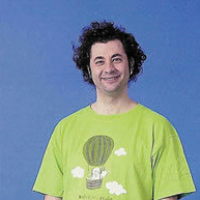
Google adds Esperanto to Google Translate, making it the 64th supported language!!
од pauxleto, 23. фебруар 2012.
Поруке: 43
Језик: English
Fenris_kcf (Погледати профил) 23. фебруар 2012. 12.23.44
You're still using the crappy InternetExplorer? Thought you followed the advices from your thread about problems with the Esperanto-fora of lernu.
sudanglo (Погледати профил) 23. фебруар 2012. 12.33.07
What can I do to improve Translation quality?
If you encounter a translation that doesn't seem right, quite often Google Translate will have alternative results available. To view these, simply click the phrase in question. When you click a better alternative translation, Google Translate will learn from your feedback and continue to improve over time.
So, I see the alternatives and if none of them are suitable I can over-type my preference. Hopefully, that is not a one-time edit but also part of the learning process for Google translate.
Anyway, poŝtaĵo now seems to come out as mail
Edit: Oh No! Totally confused now. Ret-poŝtaĵo comes out as e-post, but retpoŝtaĵo (no hyphen) comes out as email.
oxymor (Погледати профил) 23. фебруар 2012. 12.33.53
mschmitt:De kia lingvo venas la koncepto de la n-finaĵo? Mi ŝatas ĝin, sed mi scivolas ĉu ĝi ankaŭ ekzistas en iu etna lingvo.You are from Germany, aren't you? German language, for example, has accusative ending (and latin as well).
mschmitt (Погледати профил) 23. фебруар 2012. 12.42.17
oxymor:You are from Germany, aren't you? German language, for example, has accusative ending (and latin as well).Maybe german has that on the article (ein/einen, der/den) in some cases, but not on the word itself.
I'm not trying to criticize EO, I would just like to know whether Z took this concept from some ethnic language, or if it is a proprietary concept of esperanto.
oxymor (Погледати профил) 23. фебруар 2012. 12.45.50
sudanglo (Погледати профил) 23. фебруар 2012. 12.45.51
mschmitt:I'm not trying to criticize EO, I would just like to know whether Z took this concept from some ethnic language, or if it is a proprietary concept of esperanto.Yes, and you have to pay royalties (tantiemo) to Uncle Zam's relatives everytime you use it.
pauxleto (Погледати профил) 23. фебруар 2012. 12.53.11
sudanglo: Paul, it doesn't seem to work that way for me.
/CIT]
I hope that you find something that works for you soon
My name is Pauxleto
mschmitt (Погледати профил) 23. фебруар 2012. 12.58.58
Yes, and you have to pay royalties (tantiemo) to Uncle Zam's relatives everytime you use it.Guess why I protest against ACTA all the time.
darkweasel (Погледати профил) 23. фебруар 2012. 13.18.19
mschmitt:Sure, an accusative president is den Präsidenten. Anyway some Slavic languages, as well as Latin, also inflect the word itself.oxymor:You are from Germany, aren't you? German language, for example, has accusative ending (and latin as well).Maybe german has that on the article (ein/einen, der/den) in some cases, but not on the word itself.
pdenisowski (Погледати профил) 23. фебруар 2012. 13.52.28
darkweasel:All Slavic languages (at least all the ones I'm aware of) inflect the nouns and adjectives. Ancient Greek and Latin also have inflections.mschmitt:Sure, an accusative president is den Präsidenten. Anyway some Slavic languages, as well as Latin, also inflect the word itself.oxymor:You are from Germany, aren't you? German language, for example, has accusative ending (and latin as well).Maybe german has that on the article (ein/einen, der/den) in some cases, but not on the word itself.
The concept of an accusative marker also exists in other languages. For example, in Japanese the particle を(o) is used to indicate that the proceeding word is the direct object of a verb :
日本人は犬を食べない : Japanese people do not eat dogs
The word dog (犬 - inu) is followed by を to show that dog is the direct object (i.e. accusative) of "eat".
There are quite a few linguists who believe inflectional endings arose out of stand-alone particles like this that gradually became absorbed into the endings of the words themselves.
The concept of an accusative ending isn't hard at all if you already speak a language that makes extensive use of inflectional endings.
Amike,
Paul





